Analytical thinking Normal Reading Worksheets for Ages 4-8
8 filtered results
-
From - To
Welcome to our "Analytical Thinking Normal Reading Worksheets for Ages 4-8" page! These engaging worksheets are designed to enhance children’s reading comprehension and analytical skills through fun and interactive exercises. Suitable for young learners, our resources encourage critical thinking as kids explore various reading passages and answer related questions. Each worksheet promotes logical reasoning, helps develop problem-solving abilities, and fosters a love for literacy. Parents and educators can easily access and print these materials, making them ideal for home or classroom use. Ignite your child's curiosity and strengthen their reading skills today with our thoughtfully crafted worksheets!
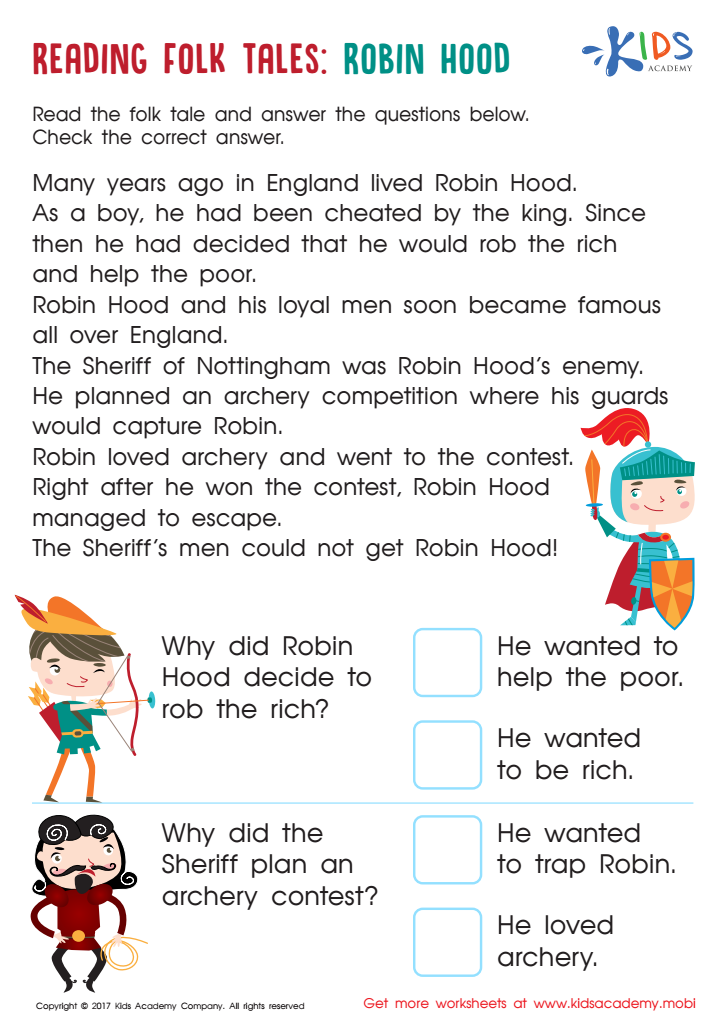

Robin Hood Folktale Worksheet
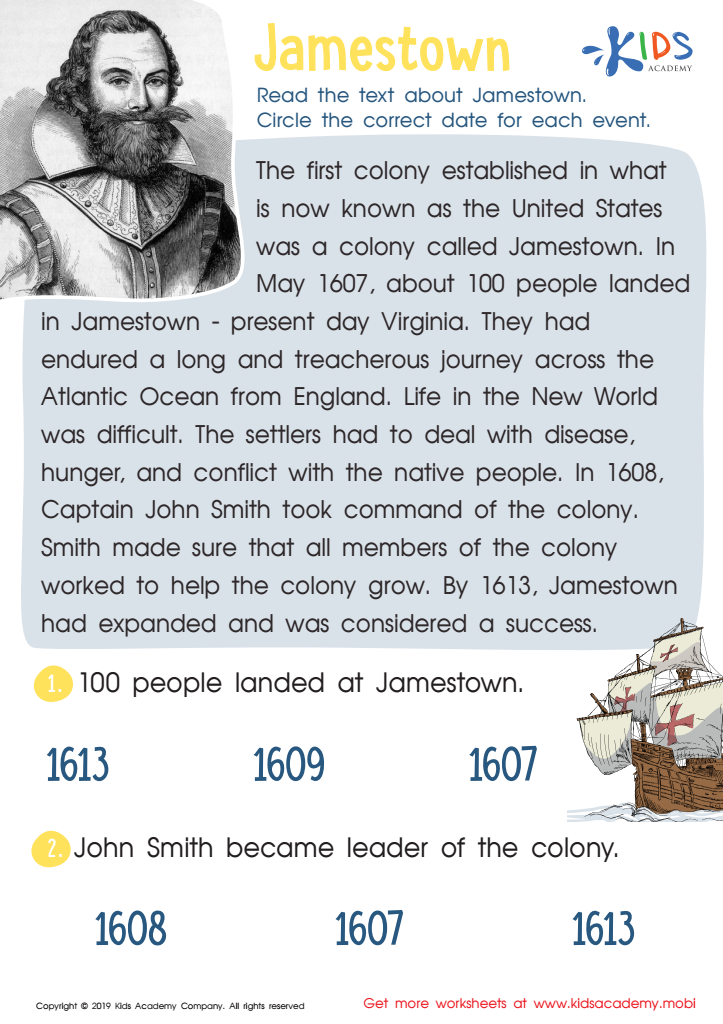

Jamestown Worksheet
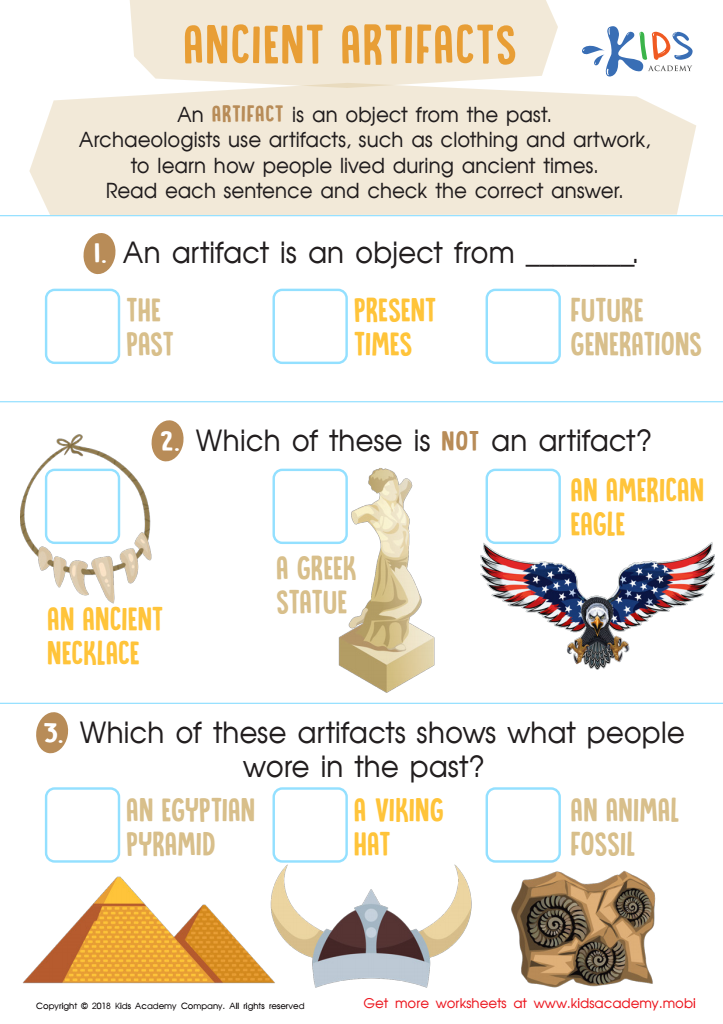

Ancient Artifacts Worksheet
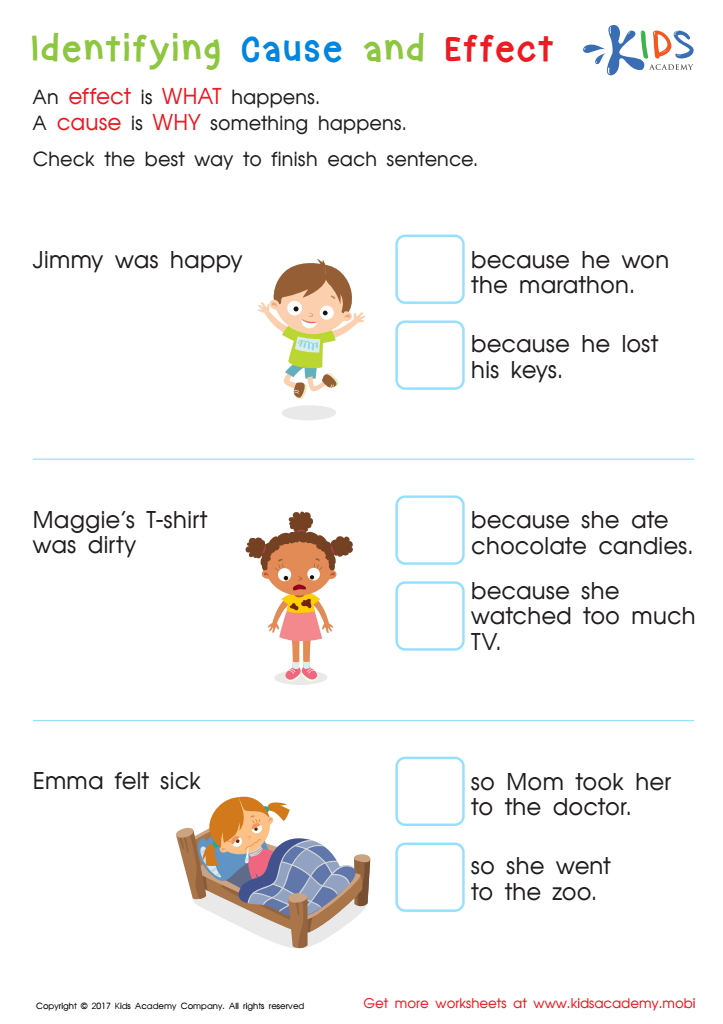

Indentifying Cause and Effect Worksheet


The 5 Sense Scientist Worksheet
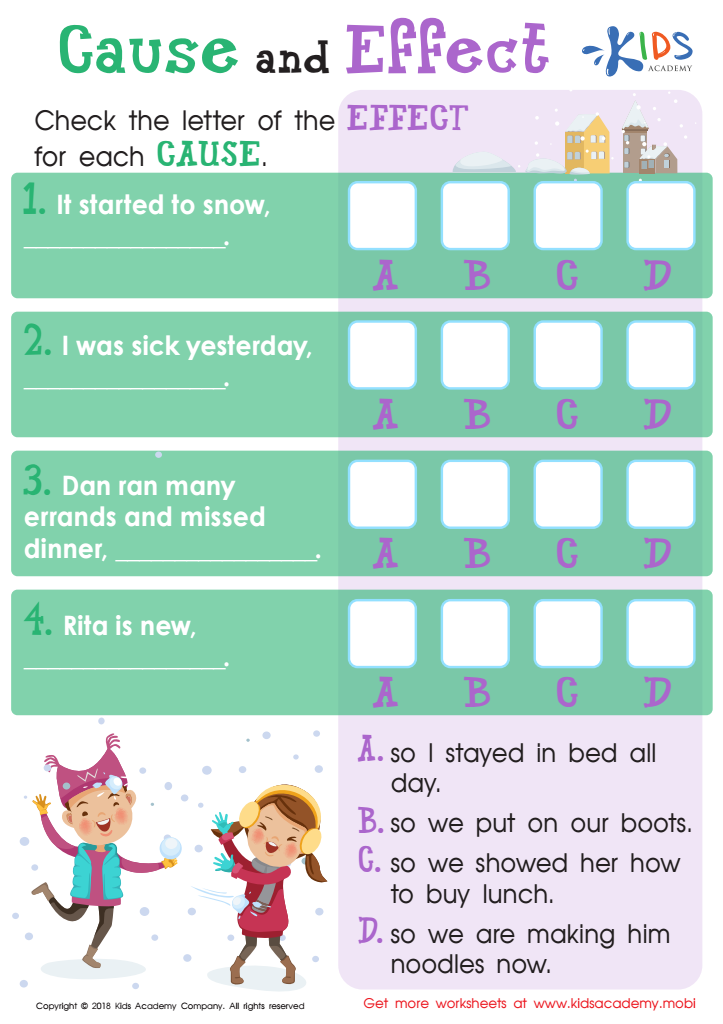

Cause and Effect Worksheet
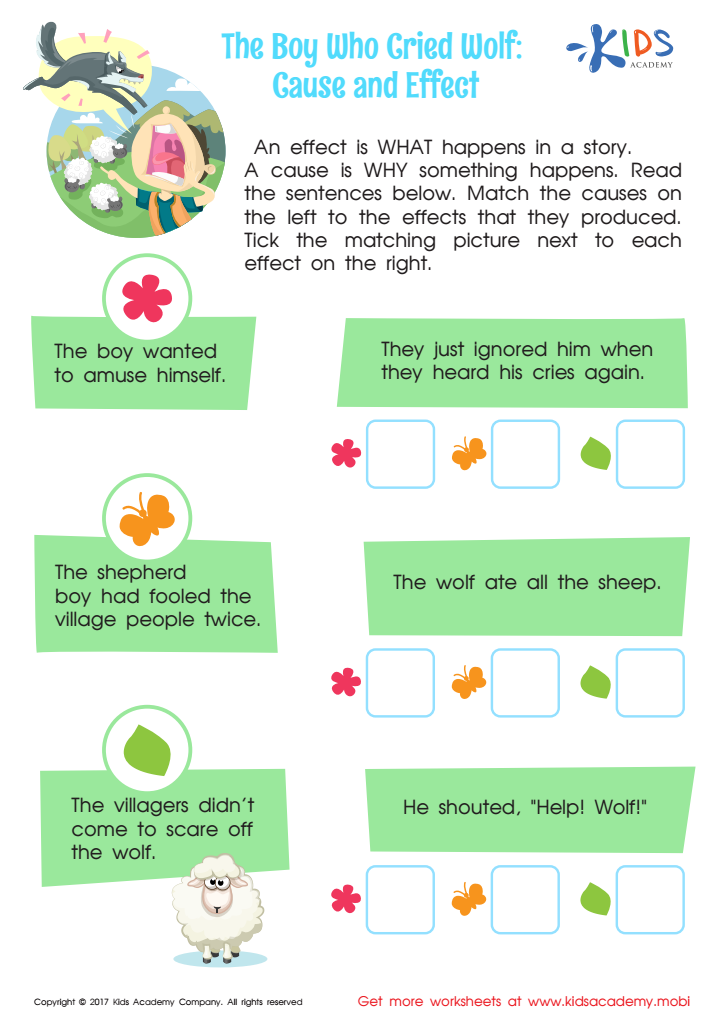

The Boy Who Cried Wolf: Cause and Effect Worksheet
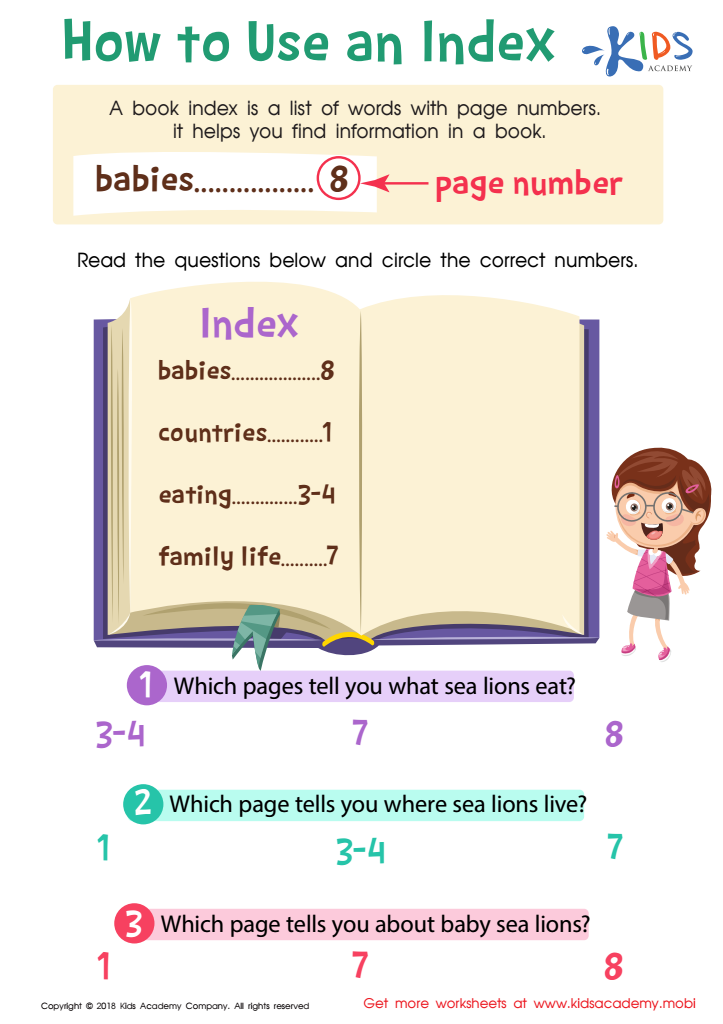

How Use Index Worksheet
Analytical thinking is a crucial skill for children ages 4-8, influencing their academic success and overall problem-solving abilities. Parents and teachers should prioritize fostering this skill during these formative years, as it lays the foundation for critical thinking, reasoning, and decision-making. Analytical thinking involves the ability to break down complex problems, identify patterns, and draw conclusions based on evidence.
Encouraging analytical thinking promotes curiosity, making children more engaged learners who explore ideas independently. Activities such as puzzles, storytelling, and open-ended questions stimulate this type of thinking, enhancing comprehension and retention.
Additionally, strong analytical skills help children navigate social situations and conflicts, encouraging them to understand different perspectives and devise solutions. This skill set is especially important in reading comprehension; as children learn to analyze characters, plot, and themes, they connect more deeply with stories, enhancing their love for reading.
Furthermore, in a rapidly changing world, the ability to think critically is vital for future success, particularly in complex subjects like science and math. By nurturing analytical thinking now, parents and teachers equip children with the tools they need to thrive academically and socially both in school and beyond.

 Assign to My Students
Assign to My Students




















